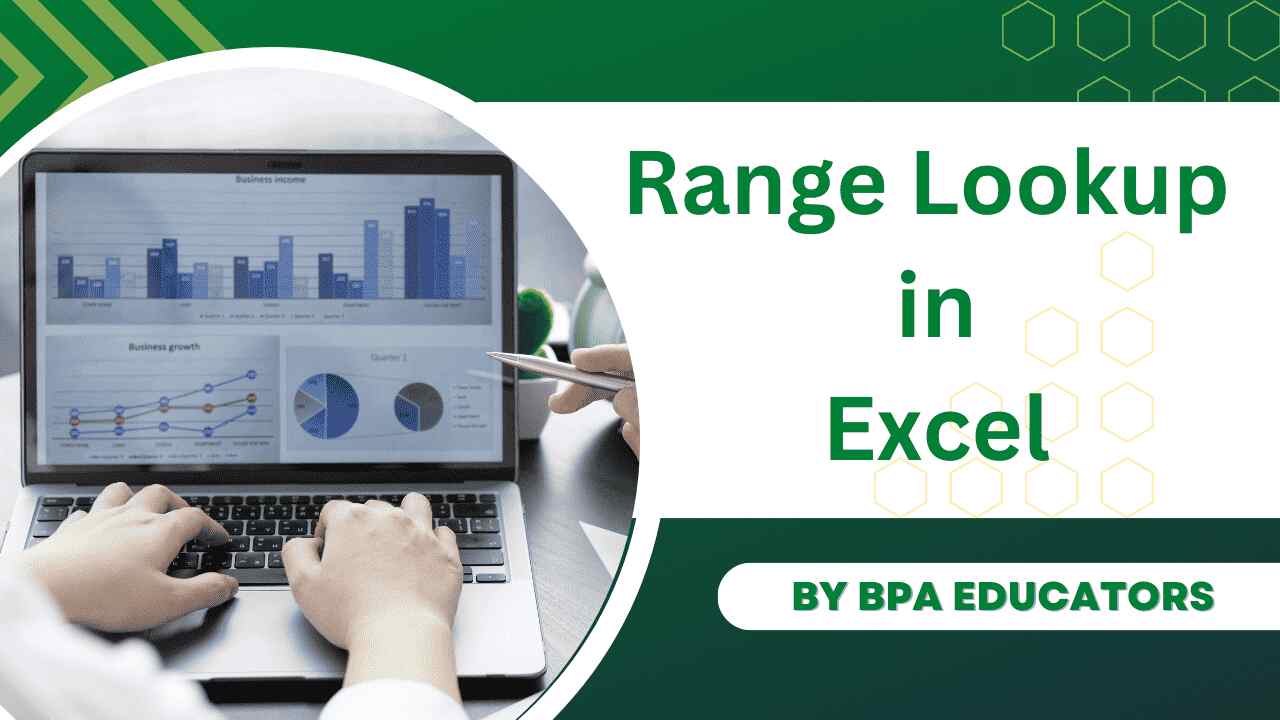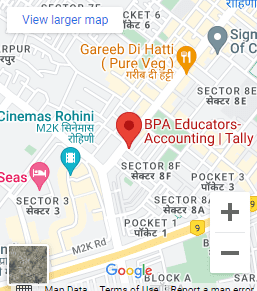Direct tax in India is overseen by the Central Board of Direct Taxes (CBDT). It was formed as a result of the Central Board of Revenue Act, of 1924.
The Direct tax is one type of tax an individual pays that is paid straight or directly to the government, such as income tax, poll tax, land tax, and personal property tax. however, such direct tax is computed based on the ability of the taxpayer to pay, which means that the higher their capability of paying is, the higher their taxes are.
For instance, in the case of income taxation, an individual who earns more pays higher taxes. It is also computed as a percentage of the total income. Additionally, direct taxes are the responsibility of the individual and should be fulfilled by no one else but him.
Types of Direct Taxes
- Income tax
Income tax is a tax on your income, wages, and earnings. The federal government certainly uses a progressive tax with seven marginal tax rates. However, it collects income tax over the course of the year. For most people, income tax comes out of your paycheck. It is also based on one’s income. Furthermore, a certain percentage is taken from a worker’s salary, depending on how much he or she earns. The good thing is that the government is also keen on listing credits and deductions that help lower one’s tax liabilities.
Who has to pay Income Tax?
Who is required to file Income Tax Return? Anybody who is less than 60 years of age and has an annual income of more than Rs2.5 lakh has to file income tax returns, according to the Income Tax Act. For senior citizens, the cut-off is Rs3 lakh, and for those who are more than 80 years old, the cut off is Rs5 lakh
Types of income
Gross income is all the income a person receives across all sources before any deductions.
Your gross income includes all
Wages
Dividends
Interests
Business income
Rental income
Alimony
and that money you received as a gift.
Transfer taxes
Firstly, the most common form of the transfer tax is the estate tax. Such a tax is certainly levied on the taxable portion of the property of a deceased individual, including trusts and financial accounts. A gift tax is also another form wherein a certain amount is collected from people who are transferring properties to another individual.
Transfer taxes are any type of tax charged when the title of a property changes hands. Additionally, for types of property that require a legal title (like real estate, bonds, or stocks) there is usually a surcharge by the state or local government to process the change. The government is certainly effectively taxing the transfer of a legal deed, certificate, or title from a seller to a buyer. The amount of the tax is also based on the property value and the property classification. As a result, some states require that the buyer pay the tax if the seller does not pay it or is exempt from paying it.
Example of Transfer Tax
For instance, Two prominent of these include gifting and inheritance. Moreover, a transfer tax is a duty charged based on the market value of the free asset exchanges, with the most common examples being estate taxes and gift taxes.
Entitlement tax
This type of direct tax is also the reason why people enjoy social programs like Medicare, Medicaid, and Social Security. Finally, the entitlement tax is collected through payroll deductions and is collectively grouped as the Federal Insurance Contributions Act.
Property tax
The property tax is charged on properties such as land and buildings and is used for maintaining public services such as the police and fire departments, schools and libraries, as well as roads. Property tax is also the annual amount paid by a land owner to the local government or the municipal corporation of his area. Moreover, the property includes all tangible real estate property, his house, office building, and the property he has rented to others.
Capital gains tax
This tax is charged when an individual sells assets such as stocks, real estate, or a business. The tax is also computed by determining the difference between the acquisition amount and the selling amount. However, capital gains tax is a levy assessed on the positive difference between the sale price of the asset and its original purchase price. Long-term capital gains tax is a levy on the profits from the sale of assets held for more than a year. Finally, the rates are 0%, 15%, or 20%, depending on your tax bracket
Advantages of Direct Taxes
Though there is a strict implementation for every individual who does not qualify for an exemption, there are actually numerous advantages of paying taxes directly. They include:
1. Promotes equality
Since direct taxes are based on the ability of a person to pay, it promotes equality among payers and citizens. Moreover, every person is charged a different amount, depending on how much they make.
2. Promotes certainty
The good thing about direct taxes is that they are determined and made final before they are even paid. In the case of income tax, the annual tax is the same every year as long as the salary does not change.
3. Promotes elasticity
Taxes are the earnings of the government, and when they fluctuate, the earnings also change. They can go higher or lower.
4. Saves time and money
The government does not need to spend on the collection of taxes because they are already taken right at the source of the income. Some companies use automatic payroll deduction systems, which help save time and money.
Rajan is a 25-year-old software engineer living in Mumbai. He spends his free time enjoying his newfound financial freedom. This is his first job and he’s clueless about tax or savings. But it’s almost the end of January and Rajan heard his friends talking about Section 80C and how they pay zero tax thanks to Section 80C. Rajan earns Rs 6,60,000 annually. Here are his salary details.
| Salary components | Monthly | Annually |
| Basic salary | 30,000 | 3,60,000 |
| House Rent Allowance | 15,000 | 1,80,000 |
| Special Allowance | 10,000 | 1,20,000 |
| Total | 6,60,000 |
Rajan looked up his pay slip and found out that his employer has been deducting a TDS on his salary of Rs 2,988 each month. This shall work out to Rs 35,860 for the whole year. While Rajan has been busy enjoying his new life he has no clue how much tax he needs to pay and whether he can save any tax!
Let’s help him!
Rajan should first find out his total income from all sources. Besides salary income, Rajan has earned savings bank account interest of Rs 2,500. He found this amount in his bank statement. His father had forced him to put aside Rs 50,000 in fixed deposit and from his online FD statement, he found out he will earn an interest of Rs 3,500 on this FD until 31st March 2020. Rajan is not sure whether any TDS has been deducted from his interest income ? so he looks up his Form 26AS. Form 26AS has the details of all the taxes deducted and deposited against Rajan’s PAN. He found TDS of Rs 2,988 deducted by his employer each month until January. Here is Rajan?s total Income:
| Rajan’s Total Income | ||
| Income from salary | Rs 6,60,000 | |
| Income from other sources | Rs 6,000 | |
| Savings Bank account interest | Rs 2,500 | |
| Fixed Deposit interest | Rs 3,500 | |
| Gross Total Income | Rs 6,66,000 | |
| Tax deducted or TDS till the end of January 2020 (Rs 2,988*10) | Rs 29,880 |
Rajan also revealed he lives in a rented accommodation in Mumbai along with 4 other roommates and his share of the rent is Rs 10,000. If Rajan can organize rent receipts from the landlord and get his PAN number, he can claim an exemption on HRA. If Rajan can submit the rent receipts well in time, to his employer? his employer will be able to adjust his tax calculations.
Direct tax
| Rajan’s HRA exemption | |
| HRA exemption shall be least of the following: | |
| HRA received (A) | Rs 15,000 |
| 50% of the basic salary | Rs 15,000 |
| Rent paid less 10% of the basic salary | Rs 7,000 |
| HRA exempt (lower of the above) (B) | Rs 7,000 |
| HRA taxable (A)-(B) | Rs 8,000 |
Now let us see Rajan’s revised tax calculation.
| The tax calculation for Rajan | ||
| Income from salary | Rs 5,76,000 | |
| Basic salary | Rs 3,60,000 | |
| The taxable portion of HRA | Rs 96,000 | |
| Special allowance | Rs 1,20,000 | |
| Income from other sources | Rs 6,000 | |
| Gross total income | Rs 5,82,000 | |
| Deduction under section 80C | Rs 1,50,000 | |
| Deduction under section 80TTA | Rs 2,500 | |
| Total income | Rs 4,29,500 | |
| Tax payable | Rs 8,975 | |
| Less: Rebate under section 87A (for total income up to Rs 5 lakh) | Rs 8,975 | |
| Tax payable | Nil |
Did you notice! If Rajan can manage to claim Rs 1,50,000 under section 80C ? no tax shall be payable by him on account of the rebate claimed under section 87A. With this deduction, his taxable income does not exceed Rs 5 lakh which is eligible for a rebate under section 87A for the AY 2020-21. However, Rajan has to file an income tax return because his gross total income is above the basic exemption limit of Rs 2.5 lakh. Also, Rajan can claim a refund of the TDS of Rs 29,880 which has been deducted from his income.
Rajan claims Rs 1,50,000 under section 80C. Deduction on Section 80C is available for PF @12% of Basic Salary, it’s Rs 43,200 for him. Since this is already deducted from their salary, he simply needs to consider this amount? no additional payout is required. Rajan wants to try his hands in equities and finds the market returns promising so he invests Rs 50,000 in ELSS. He opens a PPF account and deposits Rs 57,580? all of these add up to Rs 1,50,780. The amount of deduction eligible under section 80C is limited to Rs 1,50,000. Accordingly, Rajan claims a deduction of Rs 1,50,000 under section 80C.
Direct tax
| Deduction under section 80C available to Rajan | |
| EPF contribution @ 12% of basic salary | Rs 43,200 |
| Subscription to ELSS | Rs 50,000 |
| Contribution to PPF | Rs 57,580 |
| Total | Rs 1,50,780 |
| Deduction eligible | Rs 1,50,000 |
BPA offers a Direct Tax course which is a tax you pay on your income directly to the government. By law, taxpayers must file a Direct Tax return annually to determine their tax obligations.
Direct Taxes are a source of revenue for governments. They are used to fund public services, pay government obligations, and provide goods for citizens. These are taxes an individual or a Hindu Undivided Family or any taxpayer pay on the income received.
The law prescribes the rate at which such income should be taxed. BPA offers you a course that is specially designed to understand the complexities of tax and in this,
we’ll help you to learn every aspect from very basic to advanced levels of Direct Tax. Also, we give you knowledge about how to put the tax to use for their business organization. BPA Educators provide the needed platform to the tax learners and give competitive course material and live training by industry experts. Our trainers here are with immense experience in consulting and training. We provide corporate training and 100% placement support. This will help you get good technical knowledge of various taxes and you will do well in Interviews and get good job offers
You will also receive
- 1 Real Live project
- A Certificate of Professional Training after the completion of the course
- OJT Certificate from CA/CS
- OJT(On the Job Training) under Experienced CA/CS
- Expert Advice
Modules
- Income Tax in India? An Introduction
- Income Exempt from Income Tax
- Income from Salaries
- Income from House Property
- Income from Business or Profession
- Capital Gains
- Income from Other Sources
- Clubbing of Incomes
- Deduction from Gross Total Income
- Computation of Tax Liability of Individuals
Practical (E-filing of Income Tax)
- Obtaining PAN
- Registration under Income Tax
- Computation of Income Tax
- Residential Status
- Online Payment Taxes
- Online Return Filing
- ITR Forms ITR-1, ITR-2, ITR-3, ITR-4, Sugam, ITR-5, ITR-6
- Process of Refund Claim
- Advance Tax
- Self-Assessment Tax
- Tax on Regular Assessment
- Revise Return
- Penalty, Interest, etc.
Practical (E-filing of Tax Deduction at Source)
- Obtaining TAN
- Computation of TDS
- TDS on Salary
- TDS on Non-residents
- Online payment of TDS and TCS
- Return filing- 24Q, 26Q, 27Q, 27EQ
- ITR Forms ITR-1, ITR-2, ITR-3, ITR-4, Sugam, ITR-5, ITR-6
- Generate TDS certificates- Form 16 and Form 16A
- Form 26 AS ( Tax Credit )
- Generate FVU file
- Generate consolidated Report
- Revise Return
- Penalty, Interest, etc.
Career Options after Direct Tax & E-Filing Course -:
- Tax Associate
- Tax Consultant
- TRP(TAx Return Preparer)
For expert advice
Address: C-8/13, Sector-7, Rohini, Delhi-110085
Call: +91-8882196405
Email: info@bpaeducators.com
Private Facebook group: BPA mastery
To get more updates join the VIP COMMUNITY OF BPA EDUCATORS- https://www.facebook.com/groups/bpamastery/
Website: www.bpaeducators.com
Instagram: https://www.instagram.com/bpaeducator/
Facebook: https://www.facebook.com/bpaeducator
Twitter: https://twitter.com/EducatorsBpa
Youtube: https://tinyurl.com/y9nb27xc
Linkedin: https://www.linkedin.com/company/bpa-educators/




 Location
Location